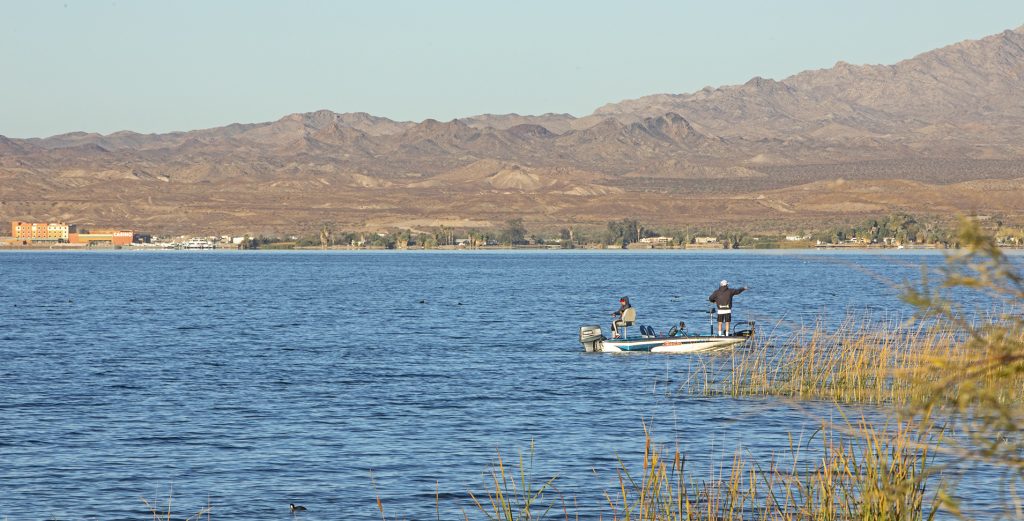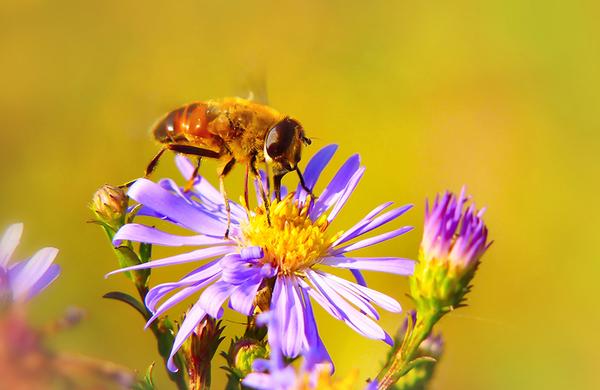The recent coronavirus (COVID-19) situation is affecting us all in many different ways. We appreciate the complexity of its impact, and Arizona Humanities respects the need to prioritize public health, safety and welfare.
Out of an abundance of caution, and in addition to the closure of the Smithsonian Water/Ways exhibit in Lake Havasu City, we have decided to cancel the last stop of Water/Ways’ tour of Arizona, which was a planned two-week pop-up exhibit at Phoenix Burton Barr Central Library.
Water/Ways may be leaving, but we are already planning the next Museum on Main Street exhibition tour of Arizona. Voices and Votes: Democracy in America will begin its Arizona tour in Prescott on June 20.
Charlie Cassens is concerned about Lake Havasu.
If the bright-blue reservoir fed by the Colorado River were to become contaminated or otherwise compromised, local and regional economies would obviously feel the impact. Something ineffable would be damaged as well: the vibrancy of a community defined and sustained by its neighboring body of water.
All of this may seem like an unlikely scenario, but Cassens—who retired in 2017 as Lake Havasu City Manager–cautions that “we fear there’s no single authority that would take full responsibility for Colorado River quality issues.” The Bureau of Land Management, the Army Corps of Engineers, the Bureau of Reclamation, and even the U.S. Coast Guard share jurisdiction over the Colorado River, Parker Dam, the land under and around Lake Havasu, and the water within it. If a contamination scenario develops, will any of those entities be able to focus on the larger picture?

The answer to that concern, Cassens thinks, is to establish an Environmental Learning Center in Lake Havasu City, a regional facility dedicated to water and sustainability education. The ELC is planned as a green facility of up to 15,000 square feet, situated on a picturesque 80-acre campus near Lake Havasu. Laboratories at the ELC will be open to students of every age and to research professionals. Municipalities and agencies can take advantage of sophisticated testing facilities, and curious laypeople can engage with conservation programs. Meeting spaces, galleries, and recreational areas will draw local residents and visitors. Cassens and fellow proponents believe the center will position Lake Havasu City as “the subject matter experts on all things water quality on the Colorado River.”
Cassens brings forty years’ water and wastewater management experience to the Environmental Learning Center planning process. Starting as an engineer in Texas, he accepted a public affairs position in San Diego just in time for a severe water shortage in 1992. Guiding water users through use restrictions and conservation methods influenced him to become a founding board member of the San Diego Regional Chapter of the WateReuse Association. Cassens brought his water expertise to Lake Havasu City in 2001. As Public Information Officer and, later, City Manager, he learned even more about water quality infrastructure and the politics of water use and sustainability in this arid region.
The groundwork for the Environmental Learning Center was laid twelve years ago, when Lake Havasu City acquired 280 acres of federally-managed land for public use. The city implemented the “Vision 20/20” program to plan development of the parcel, a proposal that won second place in the 2017 “America’s Best Communities” competition. A quarter of the $2 million prize money was allocated to ELC planning. The first planning phase, creating a wish list of the center’s capabilities and amenities, was an exercise in imagination and practicality. The second phase–drilling down on ELC spaces and their special functions, developing renderings for publicity and presentation, lining up financial partners and creating a charitable foundation to handle donations and agency contracts—will take years of collaboration and hard work to develop and implement.

While Lake Havasu City waits for the Environmental Learning Center to come online, the need for the services such a facility can provide only grows. The ELC will house a new state-certified water quality laboratory for Lake Havasu City, replacing the current outdated one. The lab will also provide testing services to smaller communities along the river. It will feature a glass wall, allowing visitors to view processes and engage with workers. In fact, the “most active component” of the ELC will be its laboratories, Cassens says. In another lab, a planned partnership with Arizona State University will utilize sensitive instruments to analyze water down to its “molecular state,” lowering the chance that substances for which safe levels have not yet been determined–like trace elements of pharmaceuticals—will affect the water supply.
Local and regional economies depend on Lake Havasu and the Colorado River, but people much farther away should be just as concerned about what they contain. “Twenty-six million Americans depend on water that comes from Lake Havasu alone,” Cassens says. Water users, policy makers, researchers and ordinary people “should get more focused on the quality of the river and how to keep it healthy. So much depends on it.”
The Environmental Learning Center planned location map, featured at the beginning of this story, is provided courtesy of Charlie Cassens.

